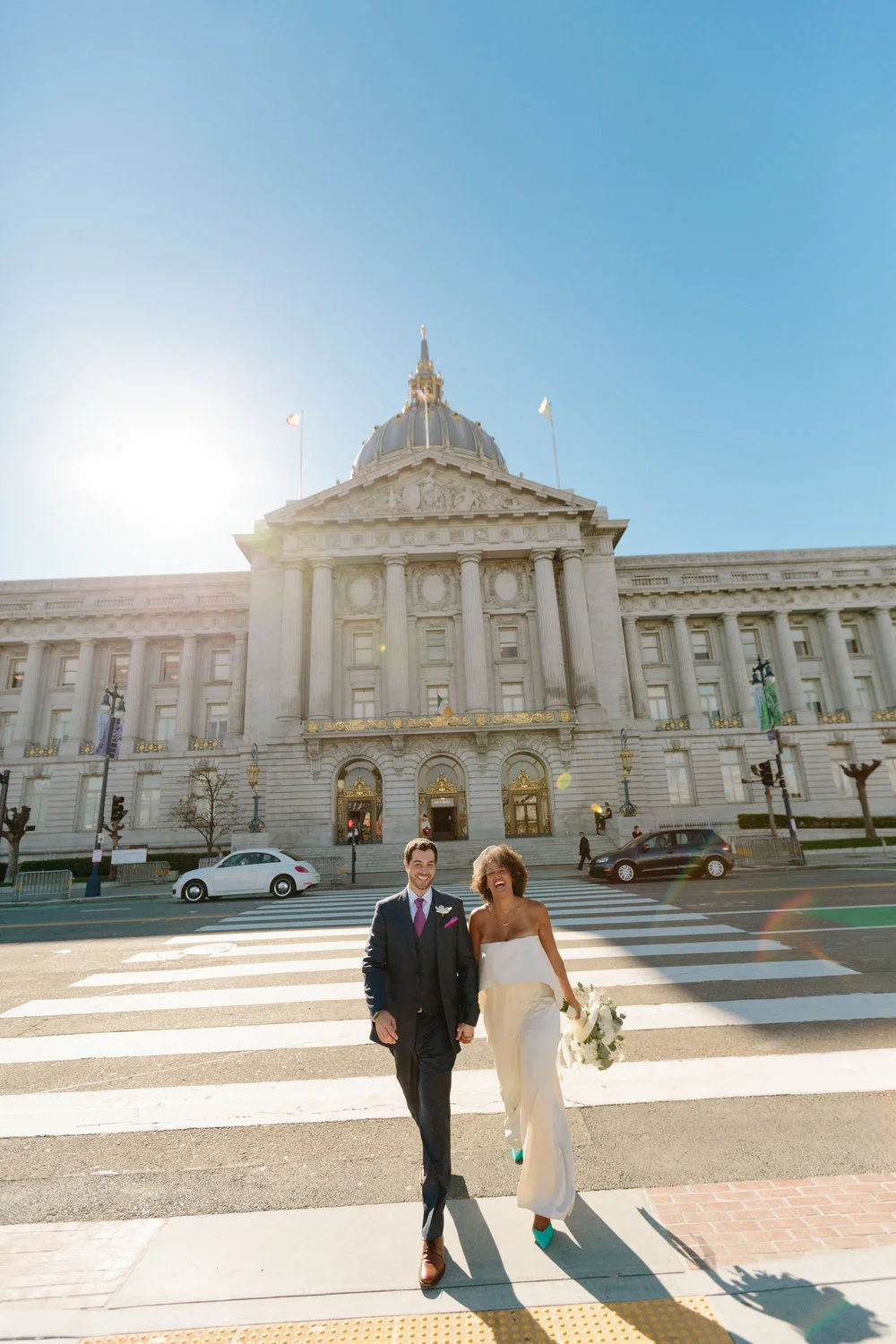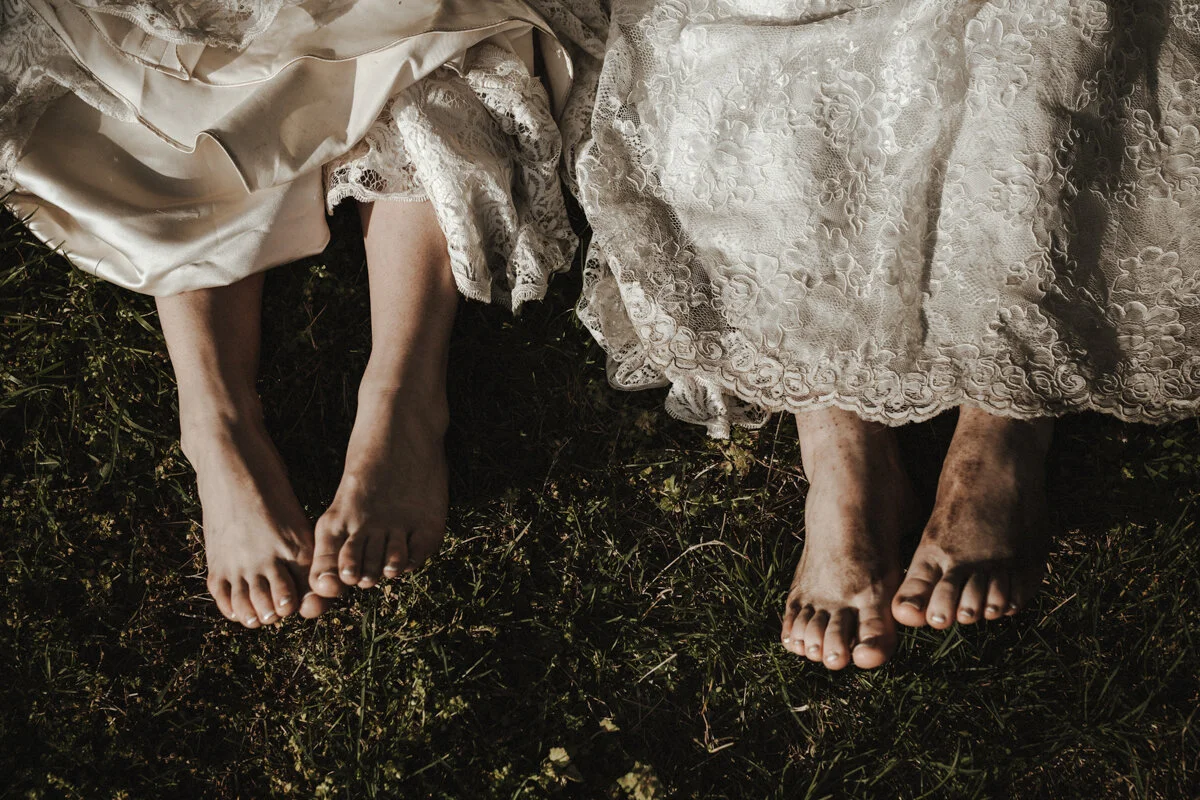Your Wedding Pantsuit Fits You, But Does Your Wedding Ceremony?
/Photo of Chloe Jackman & Mike by Michelle Walker
Marriage is changing (can I get a hallelujah?), and these days, getting married can be an act of social justice.
A wedding is a symbol, after all, and like the marriage it’s ushering in, a wedding is full of potential and increasingly devoid of rules. In this way, its meaning deepens.
One of the most powerful ways we can create meaningful shifts around marriage is by how we honor ourselves and each other through our wedding ceremonies and vows. Rewriting any social narrative means working in big blank spaces, and while that can be super liberating, it can also be super disorienting. Ultimately, though, like every creative pursuit, it’s an empowering act of self-discovery that benefits us all.
The importance of ceremony
When you think of the (seemingly endless) opportunities to infuse your wedding with your spirit of being, loving, and moving in the world, does your ceremony come to mind?
Does it get the same attention as the band, the flatware, and the yard games?
Or is the ceremony a perfunctory thing to tolerate, this formality we all agree to soldier through (and sometimes even stomach) so we can get to the fun part?
Ceremony as an act is important for people. A ceremony is full of symbolism and ritual—tangible stuff, nods to our tactile senses—allowing us to hook into the reality of transition. Something is changing, says ceremony, Wake up and pay attention. Be here now.
It’s not surprising that many modern couples feel disconnected from the wedding ceremony. Stodgy tradition, polarizing politics, and strict dictums can leave us feeling itchy and irritated by conventional ceremony.
Plus, the language used in “traditional” western wedding vows is hollow at best (a lot of scripted, boring babble) and foreboding at worst (to love and obey.)
While a wedding ceremony does not belong to the patriarchy, it has been appropriated and dominated by the patriarchy because… that’s what the patriarchy does best.
As human consciousness evolves, so does effective and relevant ceremony. Unless we trim or tweak it, ceremony becomes outmoded and awkwardly uncomfortable. It ceases to serve its function. Instead of wake up and pay attention, it’s numb out till this embarrassment is over.
Reforging ceremony into something that fits
Every couple has the right to reclaim a relationship with ceremony—to create a meaningful wedding ceremony and vows, and to shed any conventions that do not honor or fit them.
Here’s a quick DIY:
Symbols—Find symbols that resonate and claim them. Exchange rings, smash a glass, get married under a canopy, do a hand-tying, pour water into one vessel—whatever feels right. Before choosing symbols, be sure to do some research into the cultural and historical meanings of those symbols so that you can be respectful in the ways you utilize them and avoid cultural appropriation.
Officiant—Dig the vibe. Make sure you love your officiant’s actual tone of voice and his/her figurative tone. Ask yourself how you feel in your officiant’s presence. Make sure you like that feeling.
Vows—Talk first, then write. What do you want to hear? What do you want to say? Are there any words you loathe? Have this conversation before putting pen to paper.
Mary Beth Huwe is a writer and acupuncturist based in Asheville, North Carolina. In both disciplines, she works with entrepreneurs and people in life transitions. Her Writes of Passage program is designed to help modern couples craft their ideal wedding ceremony and vows.






















